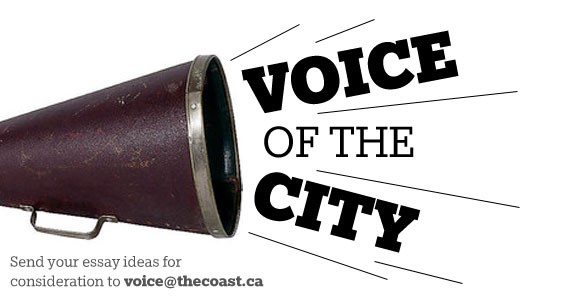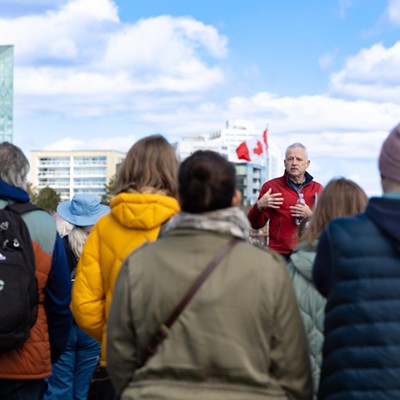When I was about to move here from Montreal, my Québécois friends—who weren't sure exactly where Halifax was located—all agreed that the city had an excellent music scene. While Halifax's musical reputation wasn't the main thing that drew me here (you can't beat a good job for that), it did make me feel better about the move. And since I got here, I've found the rumour to be true. Halifax does indeed have pretty amazing music. But the question is, How come it got so good? And can it last? Some big names come from here, for sure.
Sloan, Wintersleep, Joel Plaskett, Symphony Nova Scotia—you can reel them off yourself. But they are not what the music scene is based on. They're the tip of the iceberg, so to speak—glinting in the sunlight, and attracting lots of attention, but resting on a great big hidden lump of solid hard work by people whose names will never go up in lights.
Think about it: there are the community ensembles run for pleasure by volunteers, like the youthful new Halifax Music Co-op and the Chebucto Symphony Orchestra. There are all the bands of buddies in the basement who gig every now and then at somebody's party. There are scores of private music teachers, often woefully underpaid, who nurture the city's prodigies, as well as the simply talented or keen students, too.
There are the businesspeople, managers and bar staff who keep the music venues going, and the folk who work crazy hours to bring you the Jazz Festival and the Pop Explosion. There are music programs at universities and in schools. The Halifax schools' All-City Music Program, founded in 1967 on the premise that music is for everyone, has been instrumental in producing generations of musicians and music-lovers of all abilities.
These initiatives, however, cannot thrive on sea-air and enthusiasm alone. They need material resources too—like proper funding, and decent rehearsal and performance spaces. Music, arts and culture programs are always vulnerable to budget cuts in times when we're supposed to tighten our belts. The All-City program no longer has a central Music Supervisor at the board level and keeps going largely thanks to institutional and individual memory. Symphony Nova Scotia lost funding from HRM last year. Small, cutting-edge programs like suddenly- Listen keep Halifax on the map internationally, but scrape by on tiny Canada Council and NS government grants with little to no help from HRM. As Coast readers know, some key venues closed recently, leaving musicians wondering where their next gig is coming from.
Perceptions of the Halifax music scene are important. Research by Jill Grant, professor at Dalhousie's School of Planning, and colleagues shows that local music has been attracting students and other talented professional types to Halifax since the 1990s. As for the musicians, they see Halifax as providing a friendly musical environment that is collaborative rather than competitive. The small scale of the city leads to serendipitous encounters—a musician might get work from bumping into a friend in the street, which won't happen so much in Toronto.
But being a small city also has limits. For example, how often bands can perform in the same venue? There are only so many times a year we can go hear the same group. And since musicians aren't usually in it for the money, they need cheap places to live—a luxury not available in much of Halifax. Musicians are vulnerable to rising rents and gentrification sparked by the scene they create.
In short, music is genuinely important to this city, but there's no guarantee that it will thrive. It's not enough to just tell ourselves that Halifax has a good music scene and hope that the big names will carry on making that true. Merely branding Halifax as "creative" and claiming that culture drives economic growth has pretty much the same effect as sprinkling the city with magic fairy dust. We need to recognize all the hard work of the city's hidden musicians. But we also need to take the responsibility of materially supporting it—whether by buying a ticket (when did you last go to a show?) or campaigning for fairer systems for arts and culture funding.
After all, it will be a sad day when people who are about to move here are told, "Well, Halifax used to have a good music scene...." a
Martha Radice is assistant professor of social anthropology at Dalhousie University. She researches and teaches on the social, spatial and cultural dynamics of cities, including a course called Living in Cities.
Send your essay ideas for consideration to [email protected]

















